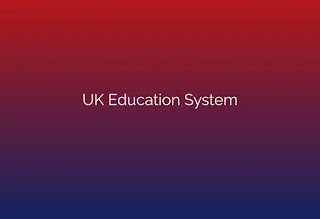Types of Higher Education System
Types of Higher Education Institutions
There are two major types of
higher education institutions (HEIs) in the UK: degree-awarding institutions
and non-degree awarding institutions.
Degree-awarding institutions,
which include universities and university colleges, are also referred to as
‘recognised bodies.’ On the other hand, non-degree institutions – also called
‘listed bodies’ – are those that provide students with bridging courses so they
can enter into a recognised degree-awarding programme.
Degree-Awarding (Universities
and University Colleges)
International students can
choose from more than 160 universities and university colleges across the UK.
These recognised bodies offer a wide range of study programmes in a variety of
fields, and award both undergraduate and postgraduate degrees.
In the UK, the power to award
degrees is regulated by law, so only authorised or recognised institutions may
award degrees. Not all HEIs in the UK can use the title ‘university’ or
‘university college.’ These titles are also regulated and protected by law, and
the only higher education providers that may use them are those that have met
the qualifications set by the government.
As recognised bodies,
universities and university colleges are permitted to award three qualifications:
bachelor’s, master’s, and doctorate degrees. Some universities and colleges
also award selected higher education awards, depending on the institution’s
nature (such as research awards).
Universities also provide non-degree
(certificate and diploma) programmes that may lead to a vocational
qualification.
Non-Degree Awarding
Non-degree awarding
institutions such as further education colleges and government-independent
institutions (also called ‘alternative providers’) offer a variety of bridging
courses and vocationally oriented programmes that students can study in order
to:
-Gain employment
-Learn a specific (technical)
skill set
-Enter into a degree programme
offered by recognised bodies
The courses offered by
non-degree awarding institutions are validated, under a formal recognition
arrangement, by HEIs that have degree-awarding powers. Non-degree awarding HEIs
may use titles such as ‘college’ as the use of such titles is not regulated by
law.
Types of Credentials
types of credentials: Degrees, Diplomas, Certificates, and Foundation Courses.
Degrees
In
England, Wales, and Northern Ireland, students can undertake a three-year undergraduate
or bachelor’s degree and graduate with a Bachelor of Arts (BA) or Bachelor
of Science (BSc). Bachelor’s degrees fall into the Level 6 qualification. They
can also select a four-year sandwich course, which requires one year of
industry professional experience or one year of study abroad. Meanwhile, an undergraduate
degree in Scotland takes four years to complete.
There
are two types of undergraduate degrees:
Single-honours programmes include a focused study of a single
subject. The core of each programme is already designed and students have the
opportunity to shape their work by choosing additional modules.
Joint-honours programmes/Combined programmes enable students to study a
combination of subjects, creating opportunities to build a degree
programme that would suit a student’s personal interests and
needs. Note that the combination of subjects is made by
the university. Students do not have the option to combine
subjects themselves. Joint honours courses vary in length from
three to five years.
Students
who have successfully completed an undergraduate degree can continue their
formal studies by undertaking a postgraduate or master’s degree, which
generally takes one to two years to finish when studying full-time. Master’s
degrees are Level 7 postgraduate qualifications.
practitioners or leading experts in a particular field of study.
Diplomas
Diploma in the UK is a one-year course qualification at Bachelor’s Degree level
(Level 6 qualification). This diploma is normally taken by those who have
already obtained a degree, just to have practical experience. A National
Diploma is a basic academic qualification that universities and colleges in the
United Kingdom offer. Most of the National Diplomas are rated at Level 3 on the
National Qualifications Framework, but there are some that count as Level 4 or
5. Among these different levels, Level 6 has been rated as a Professional
National Diploma that is usually awarded by an independent body, which
recognises specialist study in a particular field.
Certificates
who are not able to enrol in degree programmes may take up certification
courses. Many certificate courses last for six months to one year whilst others can take up to two years to finish. If a student completes the first year of a full-time degree, or its equivalent, they can be awarded a certificate of higher education (CertHE). A higher education certificate focuses on either a specific occupation or academic subject. It is the most basic certification level that a student can receive in higher education. It is an academic, rather than a vocational qualification.
Foundation Courses
Students who wish to study
in the UK may first take a preparatory course, known as foundation studies or a
pathway programme, to gain the academic or English language skills they need
for admission to higher education courses. UK universities and schools, as well
as private study centres with university associations, deliver foundation
courses and help students quickly transfer to their degree courses. Academic
pathway programmes help students gain the academic skills and subject-specific
knowledge they need to enrol and be successful in their desired degree course.
English language training is also incorporated into these programmes. Undergraduate
foundation programmes are usually divided into streams such as business
studies, science, and arts/social studies, and offer both compulsory and
elective subjects. Many institutions also offer pre-master's preparation
courses to help prospective students meet the requirements for direct entry to
a master’s degree programme.


0 Comments
Post a Comment